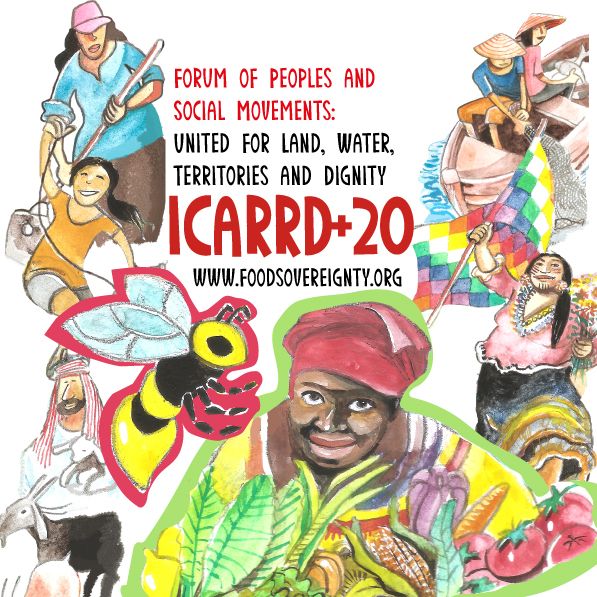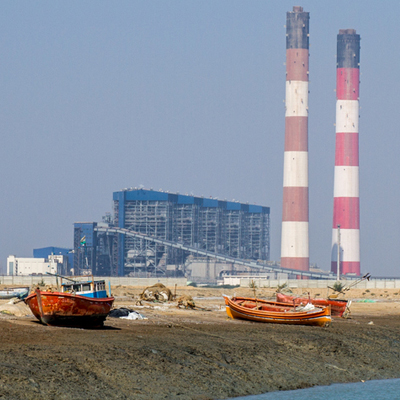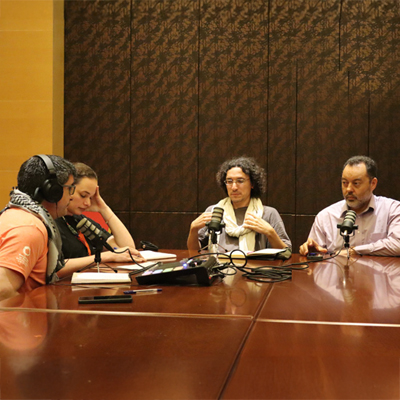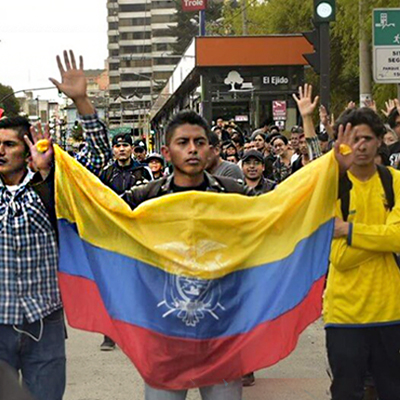El Salvador: a country with its doors open – to transnational corporations
Interview with Walter Gómez of CESTA - Friends of the Earth El Salvador

“Agricultural policy has always responded to the different economic models adopted by the country. Models which have favoured national economic groups and transnational corporations, to the detriment of the living conditions of peasant communities, indigenous peoples and the environment”.
These words come from the assessment made by CESTA – Friends of the Earth El Salvador in a recent report: Resisting the Growing Power of Transnational Corporations in Latin America and the Caribbean*.
In an interview with Real World Radio, the activist Walter Gómez of CESTA explained in more depth about the accumulation of power by transnational corporations in his country and the agricultural sector policies that enable this. “The government is strengthening its relationship with some transnational corporations, especially seed and pesticide companies, mainly Bayer-Monsanto, which is one of the largest input suppliers in the region,” he said.
Lobbying is one of the main strategies used by big companies to influence public policies and decision-making in Latin America. Gómez provided some clear examples. The close diplomatic ties between China and El Salvador has enabled Syngenta (currently Chinese-owned) to introduce new hybrid seed varieties in the country.
The story is similar for Bayer-Monsanto, according to Gómez, which is very close to El Salvador’s Ministry of Agriculture and Livestock, and uses the National Centre for Agricultural and Forestry Technology (CENTA) to validate some pesticides and herbicides before commercialising them. “These governmental institutions should be at the service of small and medium-sized agricultural producers, not at the service of large corporations, which already have enough capital to open their own research centres and produce their own studies,” said the activist.
“We hear Parliamentarians saying that we cannot reject this technology, that our farmers have the right to cultivate genetically-modified seeds to improve their income and escape poverty. Yet people in the country are practically abandoned and not seen by the State. For the State, the peasant class does not exist,” added Gómez.
Following CESTA’s assessment, El Salvador passed the “Water Resources General Law” (also called the “Water General Law”) which ensures the human right to water and sanitation. But, according to Gómez, “this is a dead law, it has not changed anything at all, communities keep protesting because they don’t have access to drinking water.”
In addition, CESTA is concerned about the fact that the law makes it easier for national and transnational water bottling companies to operate and enter the market, “among them Coca Cola, which is exploiting the Nejapa aquifer and is being granted concessions for over 65 thousand cubic meters of water per year”. “The worst thing is that communities near these aquifers have practically no access to drinking water,” highlighted Gómez.
These kinds of policies that open the door to transnational capital in this Latin American country are not new. As CESTA’s assessment shows, this began in the early 20th century when indigo production gave way to coffee cultivation and an economic model based on exportation of coffee was established. This model continue to progress and in 1950 the so-called “green revolution” took place, which introduced new technologies in the countryside, including hybrid seeds, chemical fertilisers, pesticides and agricultural mechanisation.
The agroexporter model deepened conflicts over land, and with that, worsened marginalisation of peasants and indigenous people, according to CESTA’s report. This was one of the triggers of the 12-year-long civil war (1980-1992) which gave way to the establishment of neoliberalism in the country, leaving aside national production policies in favour of the free market.
The neoliberal model consolidated a powerful Salvadoran elite and strongly oppressed social mobilisation. According to Gómez, nowadays “there is fear, the voices of civil society are being intimidated, people are not allowed to protest, argue or go freely out on the streets.” An example of intimidation of social movements took place on 1 May, when the Salvadoran government led by Nayib Bukele said publicly that those who attended the Labour Day mobilisation would be supporting terrorists.
Nonetheless, the sentiment of outrage in the face of injustice and the search for system change outweighs any intimidation. Gómez told us that CESTA is coordinating with the Movement of victims and people affected by climate change and corporations (MOVIAC): “We are carrying out actions to promote food sovereignty and denounce some megaprojects, such as the Pacific Train, the bitcoin city and the bitcoin airport. These projects will mean evicting families and granting state areas to big transnational corporations.”
* In late 2021, Friends of the Earth Latin America and the Caribbean (ATALC) issued a report which brings together assessments from eight countries of the growing power of transnational corporations in agriculture and energy sectors. It also delves in to the policy and legislative changes that have allowed this concentration of power.
The report, Resisting the Growing Power of Transnational Corporations in Latin America and the Caribbean, gathers assessments from Mexico, Honduras, Colombia, Argentina, Brazil, Ecuador, El Salvador and Costa Rica, carried out by Friends of the Earth member groups in each country.
It compiles current and historical trends which have enabled the advance of transnational corporations in the region. Among them: antidemocratic contexts, militarisation and criminalisation of social movements, lobbying and political pressure by corporations, liberalisation of trade and investment, implications for women, land grabbing, and forced displacements.
Real World Radio will share an overview of the assessments of each country through interviews with activists from each of the Friends of the Earth groups involved.






